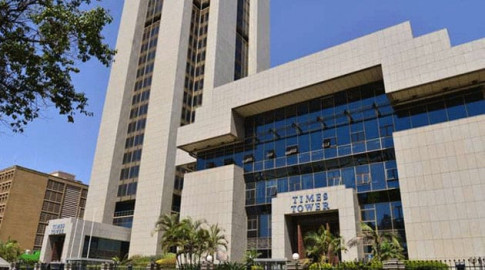OPINION: Bullish legislative talk or posturing is ultimately bad tax politics


Audio By Vocalize
By Leonard Wanyama
Considering
the current administration’s promise of a Bottom-Up Economic Transformation
Agenda (BETA), some of the recent comments by select politicians or officials
concerning the Finance Bill 2023 are rubbing the public the wrong way.
Kenyans
expect that the pursuit of policy consensus will ensure public participation,
governmental accountability, societal non-discrimination, community
empowerment, and widespread legitimacy through a process of dignified
compromises.
However, the
citizenry’s infantilization in budget conversations especially during these
hard economic times may be a pill too hard to swallow for many Kenyans.
The
consequences may manifest in various forms that are bound to further affect the
economy negatively thereby worsening the situation.
Suspicions
of any exemptions for public officials in the tax proposals are likely to soil
the mood further.
This is
because Kenyans understand that even though mistakes have previously been made,
public resources are not like a river you can continually fetch water from
without any consequences.
Using that
analogy further, it becomes obvious that without proper care for the
environment rivers and streams dry up.
Subsequently, legislators should handle the current budget debates delicately based on the
knowledge that citizens’ dissatisfaction on this matter has been building over
the past 5 years.
According to
the East African Tax and Governance Network (EATGN) 2021 revenue collection
perception study, most Kenyans do not think they receive good value from the government
in return for the taxes they pay.
Moreover,
they don’t think that the government makes good use of tax revenues for their
benefit despite Kenyans fulfilling their obligations as much as possible
considering their acknowledgment - at 86 percent of the sample size - that
indeed the impact of debt is a very serious problem.
During these
budget conversations, legislators should therefore know that the only way of
encouraging tax compliance is by championing human rights-based approaches that
establish a fiscal democracy.
This is by
using their oversight role to guarantee effective and proper government
delivery of services.
Many Kenyans
are unwilling to pay taxes because most public goods are wanting and so they
are likely to abscond on national revenue obligations due to what they consider
an unfair situation in which they remit payments for little or no gain.
Bullish
posturing, therefore, aggravates citizens more and inadvertently gives members of
the public real-time justification to engage in either tax evasion or avoidance
schemes because they become cynical of the government’s intentions.
What is
likely to follow is the current administration will struggle to prepare for the
next emergency – be it a pandemic or whatever possible disaster- and continue
to be carelessly burdened by the strain of debt, be it odious or otherwise.
Legislators
should therefore take this opportunity as a moment to carry out civic education
to their constituents rather than conducting another political battle among
themselves.
Empowering
citizens in this way will allow for much-needed familiarization with public
finance laws among other procedures, the formation of engagement forums, the establishment of dispute resolution mechanisms, and provision of much-needed
feedback to revenue collection authorities.
Also, this
is a better way of linking constitutionally established rights to citizens’
responsibilities in a practical manner because it enlightens them of existing
problems and prospects without causing offence.
It would
therefore show that politicians respect the social contract they are elected to
uphold on account of being representatives of the people who respond to
community expectations on development.
Otherwise,
the abrasive rhetoric will not only delay economic obligations like payment of civil
servants or disbursement to counties, but it will heighten public misgivings
and feed into other forces such as the paused public protests that have proven
disruptive to the national calendar of social activities such as opening of schools.
Quite
simply, don’t trigger Kenyans to the streets once again.
The
author is Regional Coordinator of the East African Tax and Governance Network
(EATGN). Follow on Twitter: @lennwanyama.


Leave a Comment